Filter by
Learning materials (19)
RSS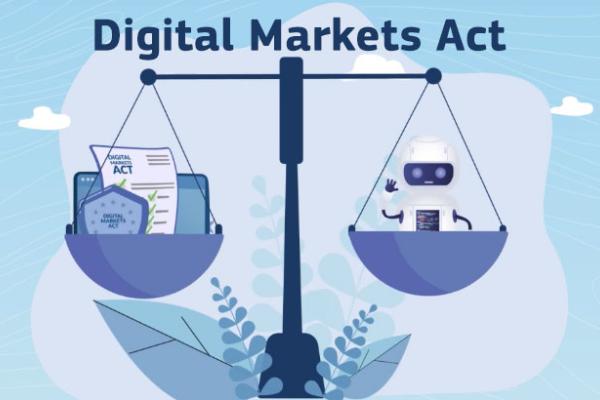
- Highlighted
The Digital Markets Act
Who are the Digital "Gatekeepers" and why does the Commission need to regulate them?
- Age groups
- Ages 15 and over
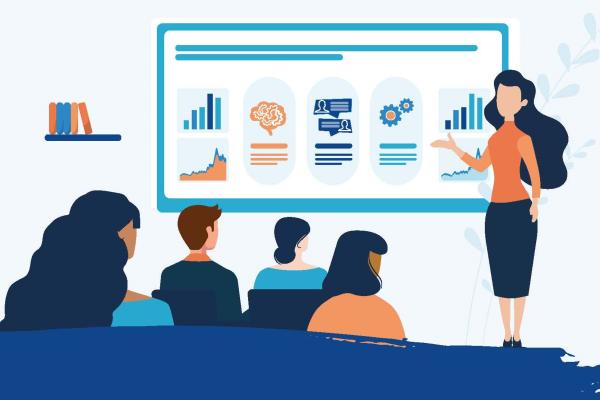
Use of artificial intelligence (AI) and data in teaching and learning
These guidelines are designed to help educators understand the potential that the applications of AI and data usage can have in education and to raise awareness of the possible risks.
- Age groups
- Ages 15 and overUp to 9 yearsAges 9 to 12Ages 12 to 15
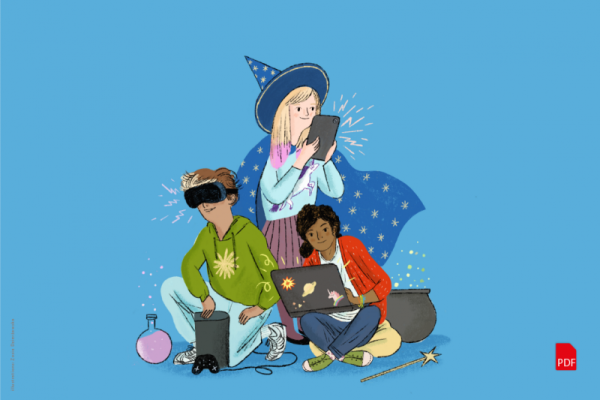
A smart kid’s guide to the online world of wonders
Jump into the wonderful and peculiar world of the internet with this guide on how it works, the magic of programming, and how to freely roam this landscape in a safe and secure way.
- Age groups
- Ages 9 to 12Ages 12 to 15

Coding
Free resources in 29 languages to help teachers introduce coding and computational thinking to students of all ages. These fun activities will help de...
- Age groups
- Ages 9 to 12Ages 12 to 15Ages 15 and over
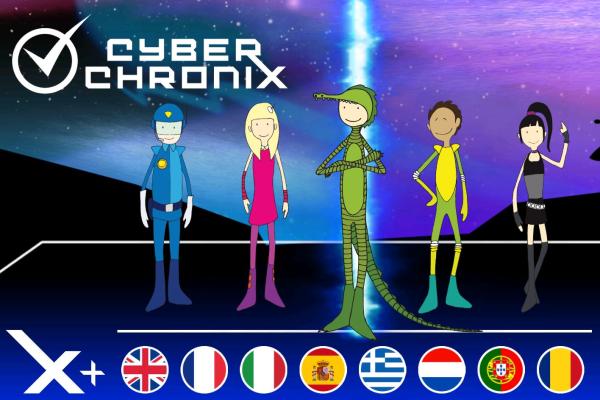
Cyber Chronix
Do you want to know more about data protection and privacy risks? Discover it all with the Cyber Chronix game, story and quiz.
- Age groups
- Ages 12 to 15Ages 15 and over
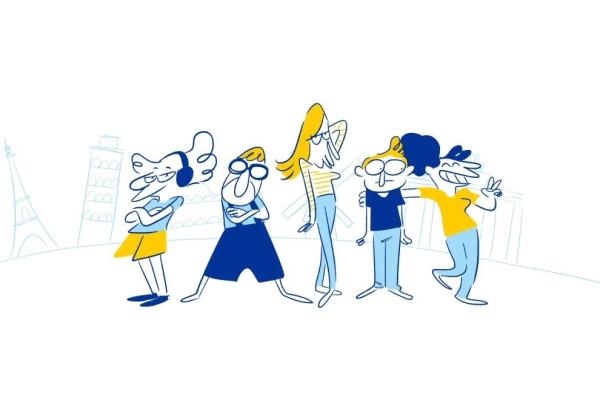
DIGITAL EXPLORERS cartoon series
Meet Helena, Klaus, Kasia, Enzo and Marion – our “DIGITAL EXPLORERS” on a fieldtrip across Europe to see how digitalisation is coming along.
- Age groups
- Ages 12 to 15Ages 15 and overAges 9 to 12
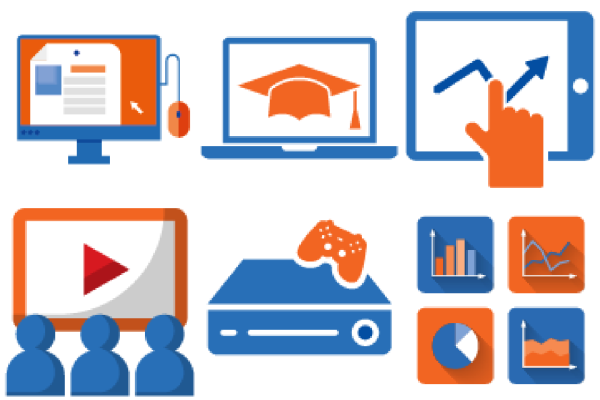
Eurostat Education corner
Do you use statistics when you teach? Or are you a student wanting to understand more about statistics? Then the Education corner on Eurostat website is the right place for you!
- Age groups
- Ages 12 to 15Ages 15 and over

Geo-blocking and online shopping
Retailers must give shoppers the same access to goods and services wherever they are in the EU. Failing to do this is called 'geo-blocking' and is bei...
- Age groups
- Ages 12 to 15Ages 15 and over
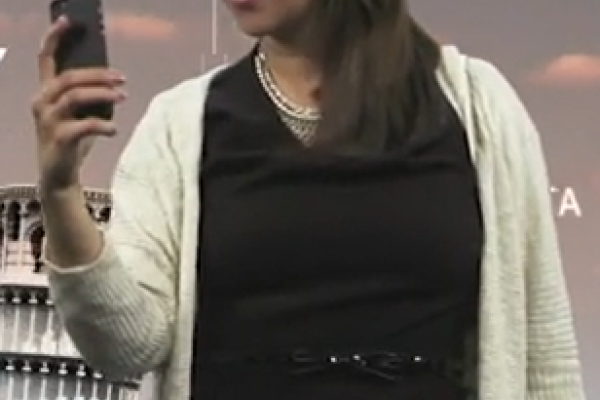
Goodbye roaming fees
Since 2017, EU citizens travelling to another Member State no longer have to pay roaming charges for calling, texting and surfing on their mobiles.
- Age groups
- Ages 12 to 15Ages 15 and over

Happy Onlife
Play and learn online safety with Happy Onlife, a game to build and develop safety and knowledge on Internet use, overuse and abuse. Make it even a fu...
- Age groups
- Ages 9 to 12

Intellectual Property in Education
IdeasPowered@School provides a variety of ready-to-use educational materials in all EU languages on intellectual property for teachers and students of all ages and levels.
- Age groups
- Up to 9 yearsAges 9 to 12Ages 15 and overAges 12 to 15
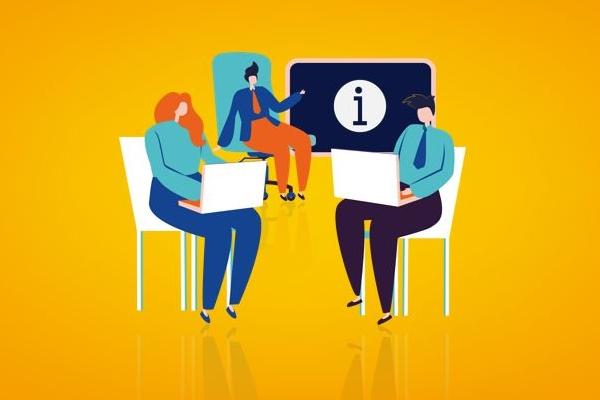
Spot and fight disinformation
The pandemic demonstrated just how fast misleading or false information can spread online. With this toolkit, secondary school teachers can help their students separate what is real from what is fake when they are browsing online.
- Age groups
- Ages 15 and over

Streaming without borders: new rules for online content
EU legislation allows consumers to take their online content with them wherever they go in the EU.
- Age groups
- Ages 12 to 15Ages 15 and over
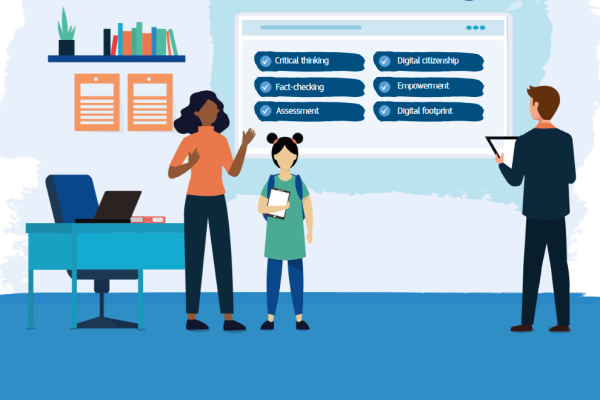
Tackling disinformation and promoting digital literacy
The Guidelines bring together pedagogy and practice in one easy-to-use format: How do we get young people excited about fact-checking and critical thinking? What are the technical dimensions of disinformation? How can we identify deep fakes?
- Age groups
- Ages 9 to 12Up to 9 yearsAges 12 to 15Ages 15 and over
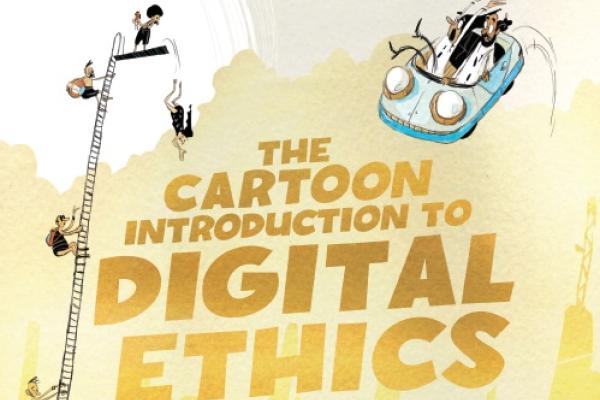
The cartoon introduction to Digital Ethics
This comic book provides a visual insight into the concept of digital ethics. What is digital ethics? New technologies are shaping the way humans inte...
- Age groups
- Ages 15 and over

The Digital Services Act (DSA) explained
Are you curious about how the EU protects you online? The new rules introduced in the Digital Services Act (DSA) aim to create a fairer and safer online world.
- Age groups
- Ages 15 and overAges 12 to 15

The evolution of Artificial Intelligence
We invite you to look at Artificial Intelligence from a different perspective. This video shows you how life intersects with technology through dance,...
- Age groups
- Ages 15 and over

What is Artificial Intelligence?
What is Artificial Intelligence (AI)? What does it mean? What are the applications of AI? What can it do and how does it work? In this video AI specia...
- Age groups
- Ages 9 to 12Ages 12 to 15Ages 15 and over

Who do you think you are - Identity
How do you define your identity? And what might such characteristics be? Identity constantly shifts and evolves, and therefore our views about who we ...
- Age groups
- Ages 12 to 15Ages 15 and over

